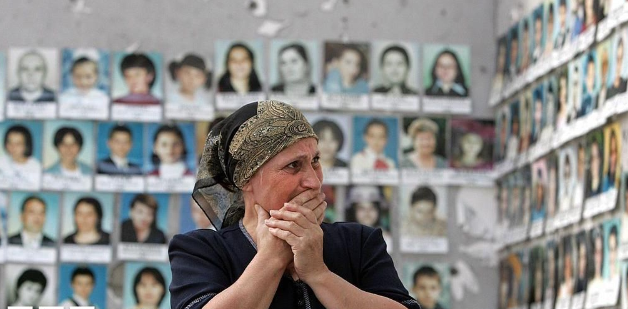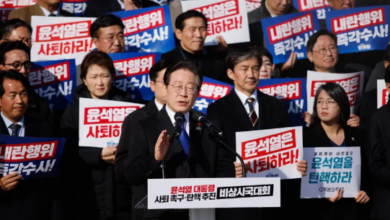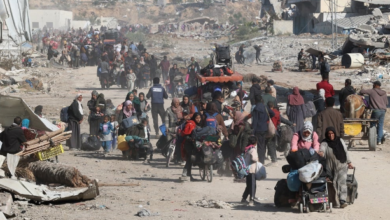The School Hostage Massacre That Exposed Putin’s Weakness

The Beslan school hostage crisis, a tragic event that unfolded in September 2004, remains one of the most harrowing episodes in modern Russian history and a significant moment that exposed vulnerabilities in President Vladimir Putin’s leadership. The crisis began when a group of heavily armed militants, demanding the independence of Chechnya from Russia, seized School No. 1 in Beslan, North Ossetia, taking over 1,100 people—most of them children—hostage.
For three days, the hostages were held in brutal conditions, with little food, water, or medical care. The militants, many of whom were linked to the Chechen separatist movement, rigged the school with explosives, heightening the tension and fear. The situation culminated in a chaotic and deadly rescue operation on September 3, 2004, when Russian security forces stormed the school. The assault led to a catastrophic firefight and explosions that resulted in the deaths of 333 people, including 186 children.
The Beslan massacre shocked the world and exposed significant weaknesses in Putin’s approach to the Chechen conflict and domestic security. The Kremlin’s handling of the crisis was widely criticized, with accusations of poor planning, excessive use of force, and a lack of transparency about the unfolding situation. Many Russians and international observers questioned why negotiations with the militants were not pursued more aggressively and why the rescue operation turned so deadly.
The event highlighted the limitations of Putin’s hardline stance on Chechnya and the broader North Caucasus region. His strategy of using overwhelming military force to quell separatist movements was called into question, as it appeared to have fueled further violence and instability rather than resolving the underlying issues. The Beslan tragedy also exposed the inadequacies of Russia’s security apparatus, which failed to prevent such a large-scale attack despite ongoing threats from militant groups.
In the aftermath of Beslan, Putin faced a wave of public outrage and growing doubts about his leadership. Although he remained in power and continued to tighten his grip on the Russian state, the Beslan crisis left a lasting stain on his presidency. It underscored the dangers of authoritarian rule that prioritizes control and suppression over addressing the root causes of conflict and discontent.
The legacy of the Beslan massacre continues to haunt Russia, serving as a grim reminder of the human cost of political violence and the perils of a government that struggles to protect its citizens from both external threats and its own policies.





